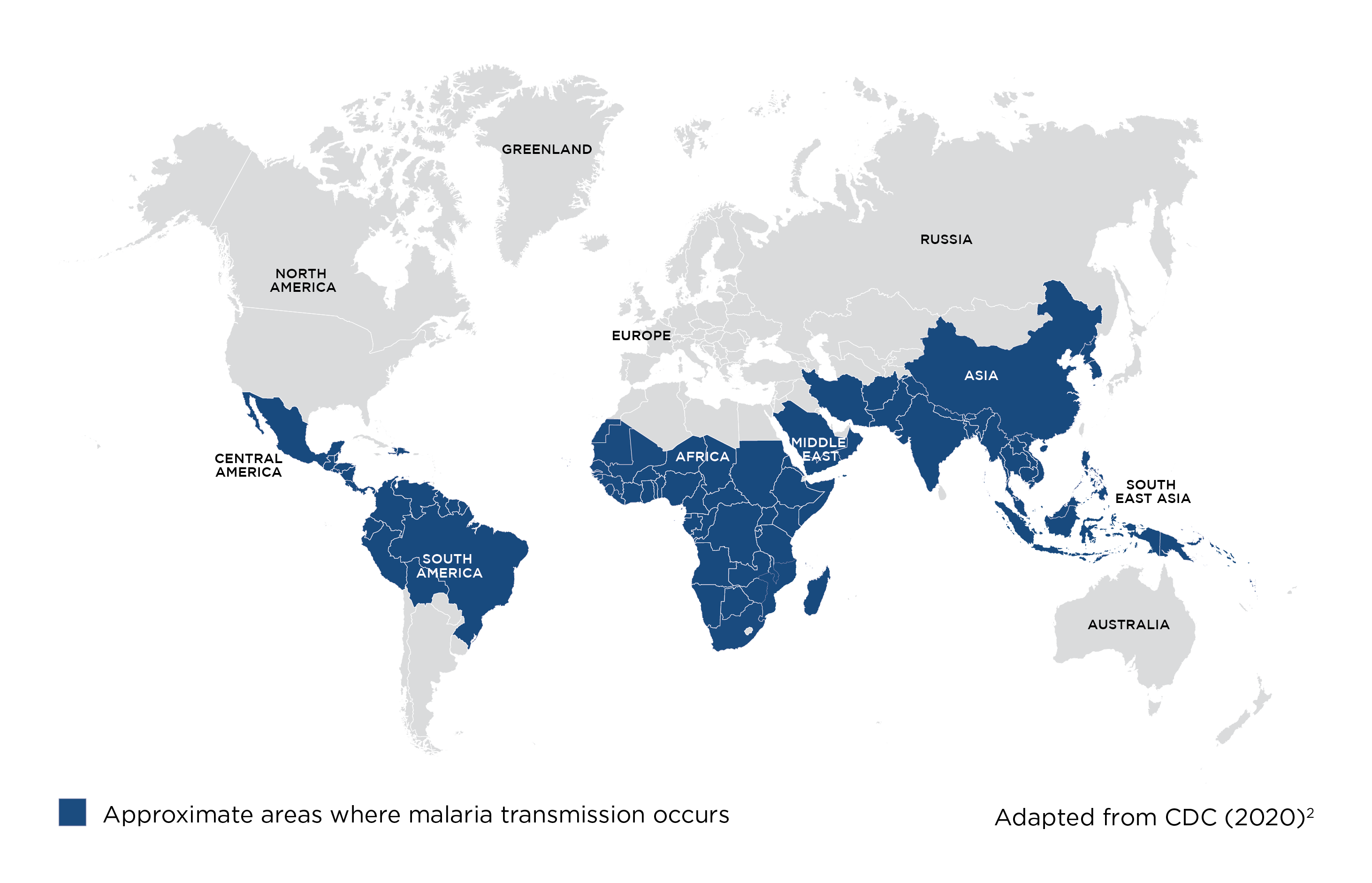Nearly half of the world’s population was at risk of malaria in 2021.1
Disease video
Risk areas for Malaria

FAQs
-
Key fact
-
How do people get malaria?
When bitten by infected mosquitoes which carry the malaria parasite.1
-
Which countries are affected by malaria?
Most countries in Central and South America, Africa, the Middle East and Asia (see map).2
-
What are the symptoms of malaria?
Fever, headache, and chills. Symptoms usually occur between 10 and 15 days after being bitten, therefore you may start to feel ill when you are back home after your trip.1
-
How serious is malaria?
Prompt treatment can stop the disease from getting worse.1 But malaria is a severe and potentially fatal disease, so quick diagnosis and treatment are vital. Severe cases can lead to seizures, mental confusion, acute kidney injury, acute respiratory distress syndrome and coma.3
-
Can I prevent getting malaria?
You can take the following precautions to help reduce your risk of infection:
- Visit your nearest convenient pharmacy or specialist travel health clinic for a risk assessment before your trip
- Use a recommended insect repellent containing either Picaridin, DEET, PMD or OLE (oil of lemon eucalyptus), IR3535 or 2-undecanone4
- Wear appropriate clothing (e.g loose fitting long-sleeved clothes, long trousers, socks and shoes) to minimise exposed skin5,6
- Use insecticide-treated mosquito nets if you are sleeping or resting in accommodation without air-conditioning or sleeping outdoors during the day or night5
Ready to get started? Check now for your nearest travel health clinic.
Get friendly advice from the UK's largest network of travel clinics*.
* This list is not exhaustive and other travel health providers are available.
References
- World Health Organization. Fact sheets. Malaria. March 2023. Available online: https://www.who.int/news-room/fact-sheets/detail/malaria (Last accessed May 2023)
- Centers for Disease Control and Prevention. About Malaria. Where Malaria Occurs. April 2020. Available online: https://www.cdc.gov/malaria/about/distribution.html (Last accessed May 2023)
- Centers for Disease Control and Prevention. Yellow Book 2024. Section 5 Travel-Associated Infections & Diseases. Malaria. May 2023. Available online: https://wwwnc.cdc.gov/travel/yellowbook/2024/infections-diseases/malaria (Last accessed May 2023)
- Centers for Disease Control and Prevention. Yellow Book 2024. Section 4 Environmental Hazards & Risks. Mosquitoes, Ticks & Other Arthropods. May 2023. Available online: https://wwwnc.cdc.gov/travel/yellowbook/2024/environmental-hazards-risks/mosquitoes-ticks-and-other-arthropods (Last accessed May 2023)
- Public Health England. Mosquito bite avoidance for travellers. January 2023. Available online: https://www.gov.uk/government/publications/mosquito-bite-avoidance-for-travellers (Last accessed May 2023)
- Fit for Travel. General Travel Health Advice. Mosquito Bite Avoidance. Available online: https://www.fitfortravel.nhs.uk/advice/malaria/mosquito-bite-avoidance (Last accessed May 2023)
UK-BOTB-2100030 (v2.0) May 2023
